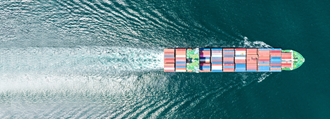This blog originally appeared on GES International’s website and has been republished following Sustainaltyics’ acquisition of the company on 9 January 2019. See the press release for more information.
Yesterday the Polisario Front, recognised by the United Nations as the legitimate representative of the people of Western Sahara (WS), announced that it will initiate new legal proceedings before EU Courts. The announcement came after the EU Council authorized the EU Commission to negotiate with Morocco for a new fisheries protocol. Interestingly, the EU council said that that the fishing agreement negotiations will also cover WS, a former Spanish colony which was annexed by Morocco in 1975. As recently as in February this year, the European Court of Justice (ECJ) ruled that the EU’s fishing agreement with Morocco cannot be applied to WS or its adjacent waters.
The ECJ had also, in December 2016, ruled in favour of the Polisario Front, saying that the EU’s Association Agreement with Morocco could not apply to WS without the consent of the people of WS. Polisario is now planning to claim EUR 240 million per year in compensation from the European Union. The claimed damages are based on the export of products from WS to the European Union that took place after 2016.
There are other examples of how the battle for the self-determination of WS is increasingly being fought for in courts instead of in the desert. A South African Court ruled in February this year that the Sahrawi Arab Democratic Republic (SADR), proclaimed by the Polisario Front, is the owner of a shipment of phosphate from WS and therefore Morocco’s state-owned company OCP was not entitled to sell the commodity. The cargo is now being put up for auction and an executive member of the SADR stated that any money raised will be transferred to the SADR authorities, so it can be used to pursue similar cases. The Polisario Front has further commenced proceedings in national courts in France and Spain against companies importing sand and agricultural products from the territory, as well as an airline company for initiating a service linking Paris to Dakhla in WS, without consulting the people of WS.
There are signs that companies are reacting to the increased risks. During 2017, there were no shipments of phosphate observed from Western Sahara to some of the previously big importers. Other companies that continue to import from the territory take new routes for the phosphate shipments in order not to pass South Africa and avoid potential legal problems. The companies PotashCorp and Agrium merged to form a new company called Nutrien. This new company, which accounts for about half of the global purchases of phosphate from WS, announced shortly after its creation that its goal is to end all imports from WS. The company gives concerns raised by shareholders as one of the reasons behind this objective. Most recently, Kosmos Energy and Cairn Energy declared that they are withdrawing from the Boujdour Maritime licenses in WS, albeit pointing to the reason being technical rather than being related to politics or reputation. This strongly indicates that the recent rulings and the Polisario Front’s initiative to take legal actions against companies that benefit from the region provide a bigger, and more material, impetus to exit. Previously, the primary reason to exit was to avoid reputational damage.
In his efforts to restart the talks between Morocco and the Polisario Front, the new Personal Envoy of the United Nations Secretary-General’s approach for WS is to engage in broad and inclusive dialogue with different stakeholders. Stakeholder dialogue is also essential to companies that are involved in WS. Company activities need to be in line with the interests and wishes of the Sahrawi people and hence companies need to consult the people of WS to respect their right to self-determination, which was confirmed in the rulings of the EU court. For many years, GES has been engaging with companies on their alignment with international law. With recent developments, it is timely to step up this engagement and show that dialogue is the way forward – on all levels.
Recent Content
Six Best Practices Followed by Industries Leading the Low Carbon Transition
In this article, we take a closer look at the leading industries under the Morningstar Sustainalytics Low Carbon Transition Rating (LCTR) and examine the best practices that have allowed them to emerge as leaders in managing their climate risk.
Navigating the EU Regulation on Deforestation-Free Products: 5 Key EUDR Questions Answered About Company Readiness and Investor Risk
The EUDR comes into effect in December 2024, marking an important step in tackling deforestation. In this article, we answer five key questions who the EUDR applies to, how companies are meeting the requirements, and the risks non-compliance poses to both companies and investors




-5-key-questions-answered-about-company-readiness-and-investor-risk.tmb-thumbnl_rc.jpg?Culture=en&sfvrsn=ee2857a6_2)